This is the April 2024 edition of our monthly series of Ethics case studies titled What Do You Think? This series is comprised of case studies from NSPE archives, involving both real and hypothetical matters submitted by engineers, public officials, and members of the public.
Your peers and the NSPE Board of Ethical Review have reviewed the facts of the case as shown below. And, here are the results.
Your opinion has been registered for the April 2024 edition of our monthly series of Ethics case studies titled What Do You Think?
Your vote is recorded as:

Want to know how your peers voted? We’ll send you an email with the poll results on
April 23.
Your opinion has been registered for the April 2024 edition of our monthly series of Ethics case studies titled What Do You Think?
Your vote is recorded as:

Want to know how your peers voted? We’ll send you an email with the poll results on
April 23.
A Review of the Facts
The ABC Pipe Company is interested in becoming known within the engineering community and, in particular, to those engineers involved in the specification of pipe in construction. ABC would like to educate engineers about the various products available in the marketplace: the advantages and disadvantages of using one type of pipe over another.
ABC sends an invitation to Engineer Andy, as well as other engineers in a particular geographic area, announcing a one-day complimentary educational seminar to educate engineers on current technological advances in the selection and use of pipe in construction. ABC will host all refreshments, a buffet luncheon during the seminar, and a cocktail reception immediately following. Andy agrees to attend and then subsequently attends the seminar.
What Do You Think?
Was it ethical for Andy to attend the one-day complimentary educational seminar hosted by the ABC Pipe Company?
Here is the result of our survey of your peers:
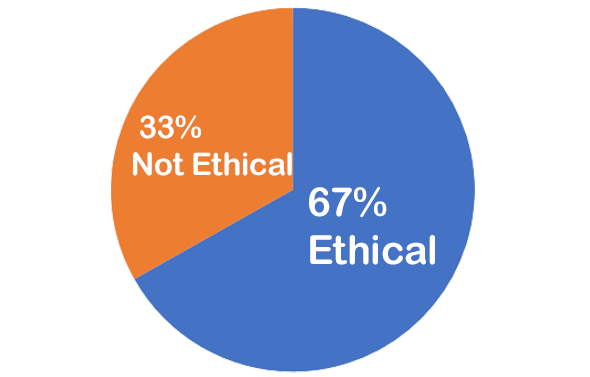
Applicable NSPE Code References:
II.4.c
“Engineers shall not solicit or accept financial or other valuable consideration, directly or indirectly, from outside agents in connection with the work for which they are responsible.”III.5.b
“Engineers shall not accept commissions or allowances, directly or indirectly, from contractors or other parties dealing with clients or employers of the engineer in connection with work for which the engineer is responsible.”III.2.e
“Engineers shall continue their professional development throughout their careers and should keep current in their specialty fields by engaging in professional practice, participating in continuing education courses, reading in the technical literature, and attending professional meetings and seminars.”
Discussion
Ethical concerns relating to the issue of gifts and other considerations provided by suppliers to engineers are addressed in several sections of the NSPE Code. Obviously, instances, where gifts or other property of monetary value are exchanged between an engineer and a potential client, are extremely sensitive and do require careful scrutiny to determine if such exchanges are proper.
In the past, this Board has examined the question from two perspectives: (1) where an engineer provides a client with a gift or valuable consideration under circumstances that could create the appearance of seeking to influence the client’s judgment, and (2) where a supplier provides the engineer with a gift or valuable consideration under circumstances that could create an appearance that the supplier was seeking to influence the engineer’s judgment. The instant case relates to the latter situation.
In Case 60-9 the Board examined a situation involving certain engineering employees of an industrial firm who were in a position to recommend for or against the purchase of products used by the company. They regularly received cash gifts ranging from $25 to $100 from product salesmen. In ruling that accepting those gifts was not ethical, the Board noted that an occasional free luncheon or dinner, and a Christmas or birthday present when there is a personal relationship, are acceptable practices. On the other hand, cash payments to those in a position to influence decisions favorable or unfavorable to the giver are not in good taste and do immediately raise the suspicion of an ulterior motive.
More recently, in Case 81-4, this Board dealt with three engineers who were principals or employees of a consulting engineering firm that did an extensive amount of design work for private developers. The engineers were involved in recommending to the developers a list of contractors and suppliers to be considered for selection on a bidding list for the construction of some projects. Usually, those the engineers recommended obtained most of the contracts from the developers. Over a period of years, the officers of the contractors or suppliers developed a close business and personal relationship with the engineers. From time to time, on holidays or on the engineers’ birthdays, the contractors and suppliers would give them personal gifts of substantial value, such as house furnishings, recreational equipment, or gardening equipment. In finding that it was unethical for the engineers to accept those gifts, we stated that engineers should “lean over backward” to avoid acceptance of gifts from those with whom they, or their firm, do business.
At that time, the Board again noted that there may be circumstances when a gift is permissible, as stated in Case 60-9, and does not compromise the engineer’s independent professional judgment.
The Code unequivocally states that engineers must not accept gifts or other valuable consideration from a supplier in exchange for specifying their products. (See Code II.4.c.; III.5.b.) However, in this case, we are dealing with a material supplier who is introducing information about pipe products to engineers in the community and has chosen the form of an educational seminar as its vehicle. While ABC Pipe Company will seek to present its particular products in a favorable light and point out their many advantages over others, a complimentary invitation to such a seminar would not reach the level that would raise an ethical concern.
The earlier decisions and the pertinent provisions of the Code relate more to the circumstances in which valuable gifts are received and at least create the appearance of a “quid pro quo” or an exchange of valuable consideration for specifying the equipment. Under the facts of this case, Andy is accepting an opportunity to become educated on a particular topic consistent with Code III.2.e. He would be attending the seminar with many of his colleagues, and there is no suggestion in the facts that anyone at ABC Pipe Company would personally seek to persuade Andy to specify its products.
We view the buffet luncheon and cocktail reception immediately following the seminar as falling within the de minimis provisions noted earlier in Cases 60-9 and 81-4, and thus it would not be improper for Andy to participate in those activities. We note, however, that had Andy agreed to accept items of substantial value (e.g., travel expenses, multi-day program, resort location, etc.) our conclusion would have been quite different.
The Ethical Review Board’s Conclusion

It was ethical for Andy to attend the one-day complimentary educational seminar hosted by the ABC Pipe Company.
BOARD OF ETHICAL REVIEW
Eugene N. Bechamps, P.E. Robert J. Haefeli, P.E. Ernest C. James, P.E. Robert W. Jarvis, P.E. J. Kent Roberts, P.E. Everett S. Thompson, P.E. Herbert G. Koogle, P.E.-L.S., chairman
Note – In regard to the question of application of the Code to corporations vis-a-vis real persons, business form or type should not negate nor influence conformance of individuals to the Code. The Code deals with professional services, which services must be performed by real persons. Real persons in turn establish and implement policies within business structures. The Code is clearly written to apply to the Engineer and it is incumbent on a member of NSPE to endeavor to live up to its provisions. This applies to all pertinent sections of the Code. This opinion is based on data submitted to the Board of Ethical Review and does not necessarily represent all of the pertinent facts when applied to a specific case. This opinion is for educational purposes only and should not be construed as expressing any opinion on the ethics of specific individuals. This opinion may be reprinted without further permission, provided that this statement is included before or after the text of the case.


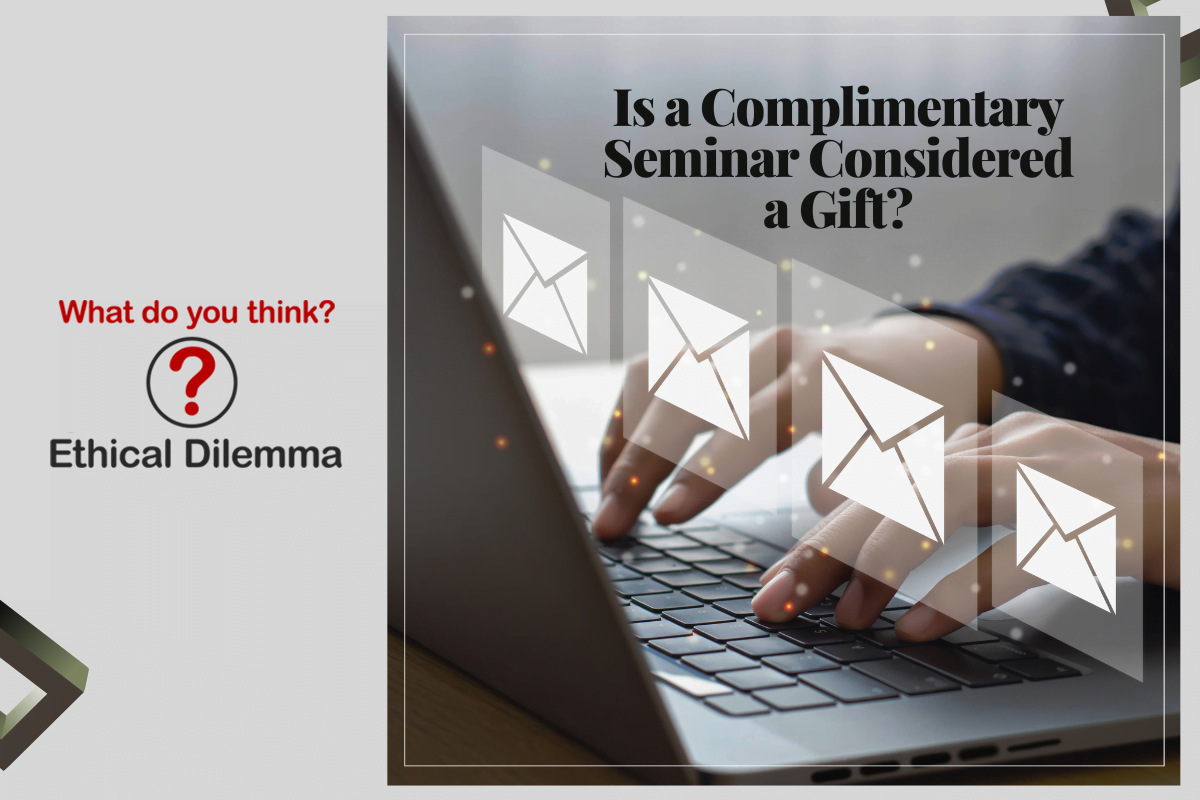
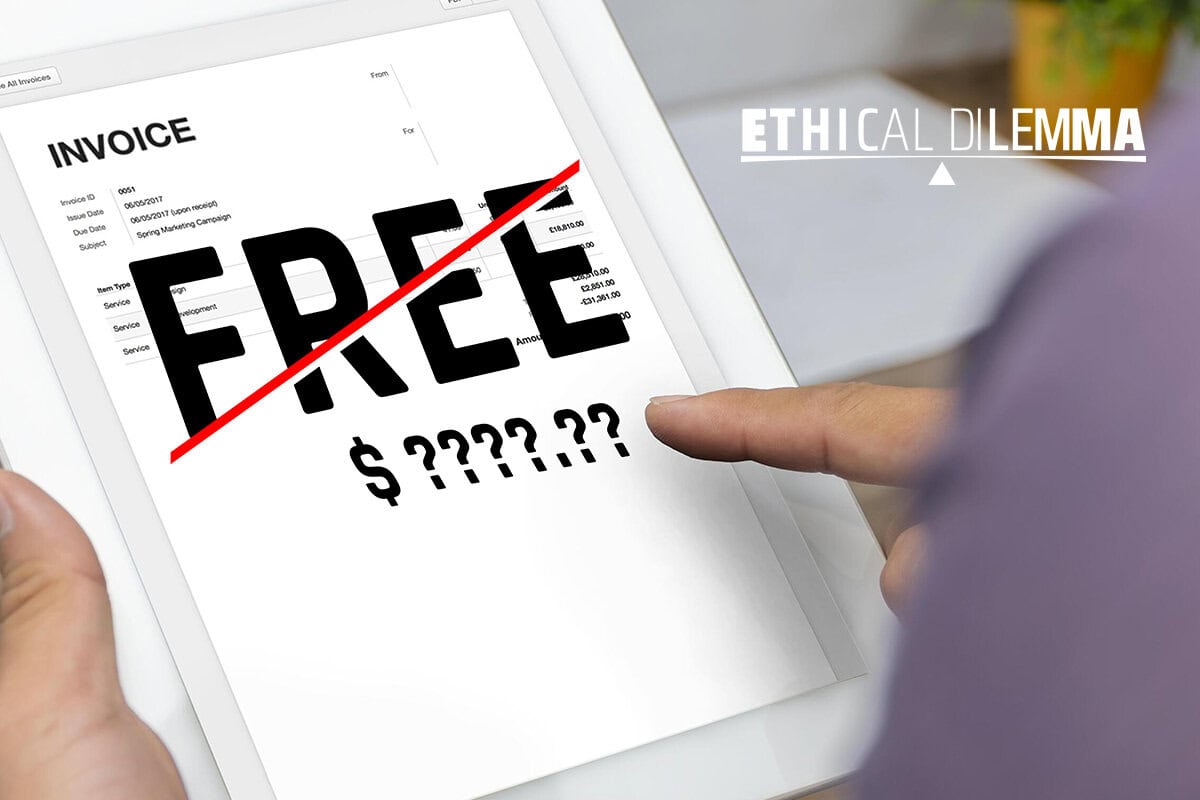
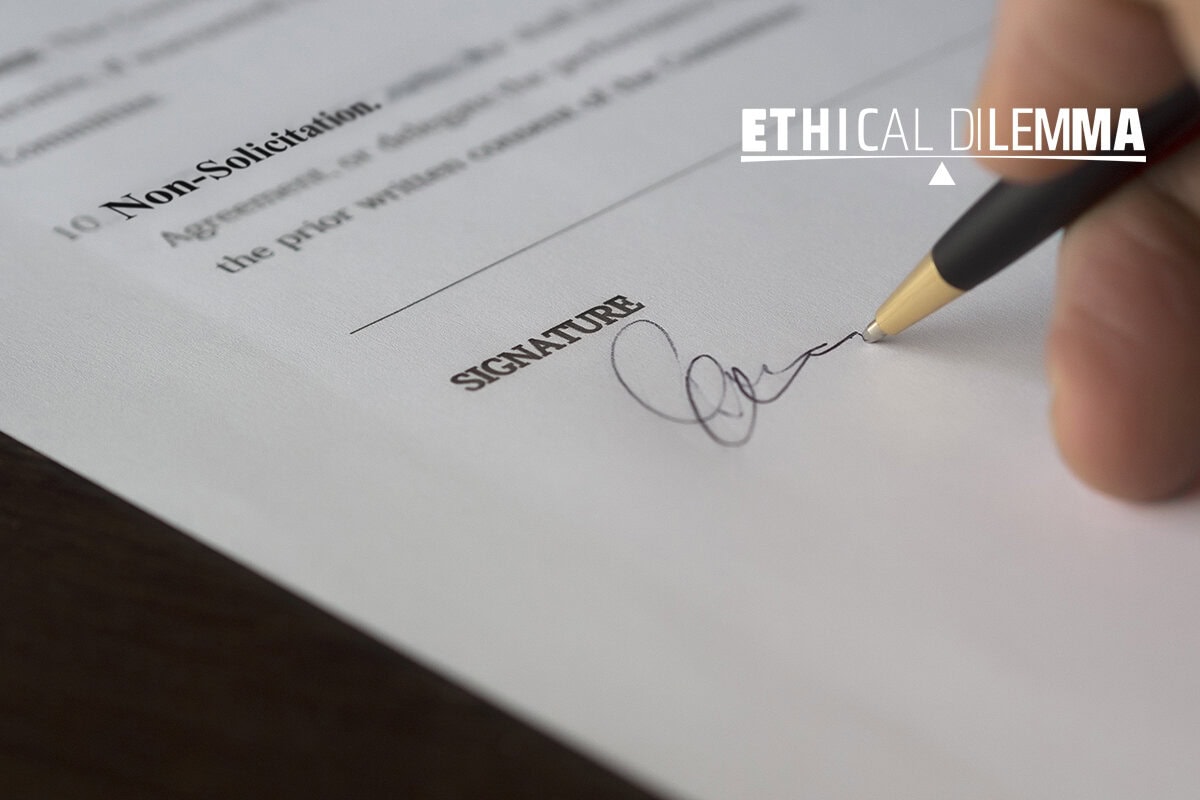
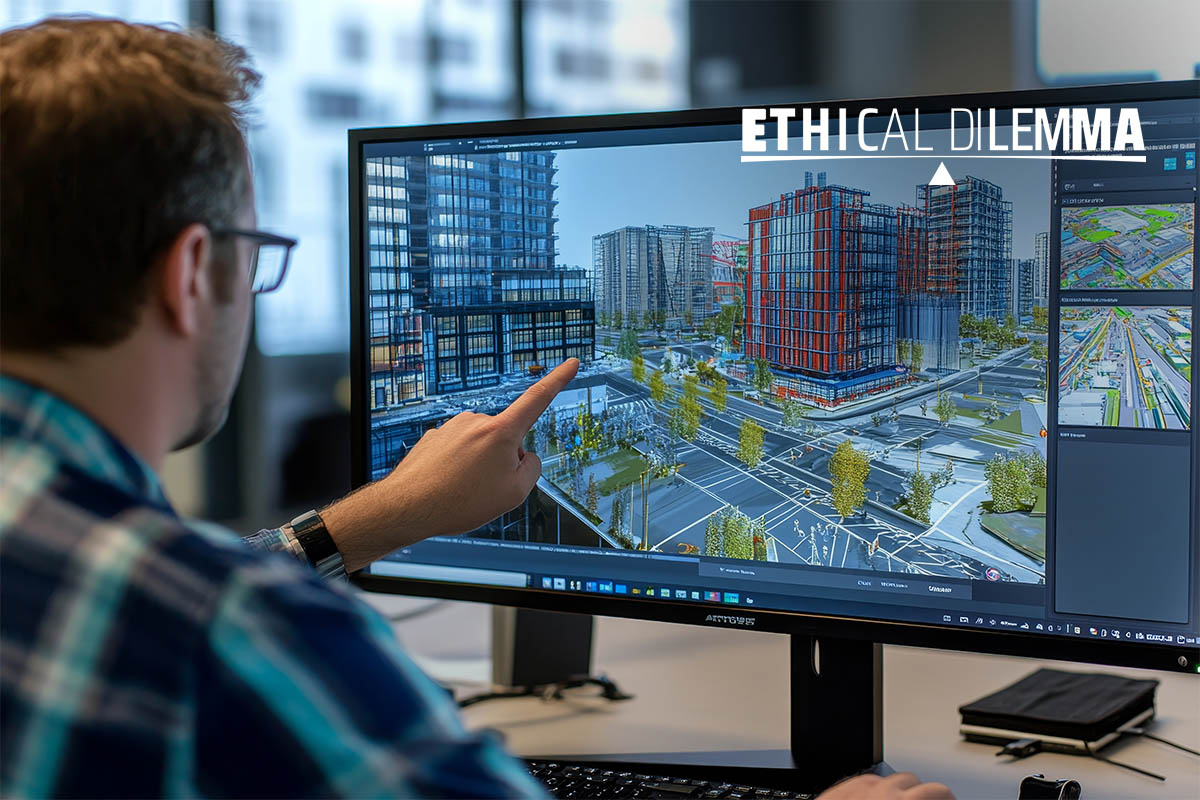



The government agency I used to work for would consider the seminar okay but the dinner/cocktails would be a no go. It was a matter of perception. Even if the attendees would not have any influence on selecting a material supplier (due to low bid process) we would have been required to pay for the dinner/cocktails out of pocket.
I agree with Board’s decision that the circumstances in which the seminar was arranged, it was purely educational, & did not suggest to favor their company products against competitors’ products!! The lunch/dinner were misleading & may misguide judgement. However, working lunch/dinners are generally acceptable.
Many engineers never leave the office and see how material(s) they can select are used and installed A “Lunch and Learn” allows the manufacturer or supplier to introduce and educate the engineer who may or may not specify that product. However, as a government employee we walk a thin line. When I have happy hour drinks with contractors, I buy the beer. Keeps the naysayers out of my life.
It is interesting to me that Manufacturer Trips happen all the time and they are accepted by many engineers. It is also interesting to me that designers are therefore allowed and encouraged to go on a Manufacturer Trip but the Engineers may not. I feel that a straight CASH payment to somebody “Kick-back” is a clear violation and doing a trip or drinks that have no educational value such as sporting events, vacations, furniture, cars, etc. are all a no. But if education is tied to the trip, event, etc. then in my opinion there is no violation, we went on the trip because of the education provided to better our work and the hotel, drinks, food, etc. are all bonuses not the reason. And I know for myself I make it very clear that any money you spend, any events we do, or anything like that is strictly for me to build and obtain information it is not a guarantee of specification. Furthermore, if I specify your product it is your responsibility to uphold that specification with price and quality, not mine. I additionally make it clear that if this arrangement does not work for you then I do not need to go to any more of your events, education, or lunches. Granted, I also do not work for a government institution and none of the companies I have worked for have ever had a policy that we can not go on manufacturer trips or events, if it had ever been an issue with insurance I believe they would have a policy against it.
Wow. Are engineers considered to be so morally weak that there is a chance they will sell their soul for a ham sandwich and a beer? I don’t think so. The type of event described in the Ethical Dilemma factual section is a great way to interact and develop professional relationships with fellow engineers, and at the same time receive useful information on a product or service that may be be helpful to a future project. Engineer Andy’s participation in this event is definitely Ethical.
I feel that the seminar and the lunch were ethical, but the “dinner and drinks” after the seminar could go outside the pale depending on how much the equivalent cost of the meal was.
Where does everybody keep getting “dinner and drinks” from? I see only “buffet lunch” and “drinks”.
Lunch makes perfect sense as it keeps everyone together and you don’t have stragglers coming bac k from lunch a half hour or more after the afternoon session starts. I also surmise that the buffet lunch was dry (somewhat unlike what might have been more common 30 or 40 years ago).
As far as drinks go, I’ll side with Kenny. I’m not likely to sell my soul for a beer.
Finally, as far as the appearance of impropriety goes with respect to government employees… Well, I’ll let what you see in the media guide your assessment of how well those rules work. Frankly, there are some slimy people for whom rules are just something to work around, just as there are some very ethical people for whom any modest, cordial gifts have no influence. Ethical rules are really written for those will follow them, not those who won’t.
Going a step further, I’d have no objection to the vendor paying for an overnight room if the attendees are coming from some distance away. That means probably an hour or more drive each way.